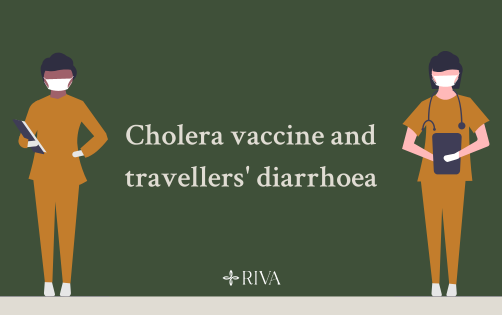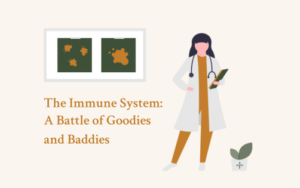Cholera and Travellers’ Diarrhoea
Cholera is a bacterial infection that spreads through contaminated water and food. It is a serious disease that can cause severe diarrhoea and dehydration, which can be life-threatening if left untreated. Travellers’ diarrhoea, on the other hand, is a common ailment that affects people travelling to developing countries. It is caused by a variety of pathogens and can cause mild to severe diarrhoea, but is usually not life-threatening. Both cholera and travellers’ diarrhoea can be prevented with the use of vaccines and proper hygiene practices. In this blog, we will discuss the cholera vaccine and its role in preventing both cholera and travellers’ diarrhoea.
What is Cholera?
Cholera is a bacterial infection caused by the bacterium Vibrio cholera. It spreads through contaminated water and food and is a serious disease that can cause severe diarrhoea and dehydration. Symptoms of cholera can range from mild to severe, and in severe cases, it can lead to death if left untreated. Cholera is most common in areas with poor sanitation and hygiene practices, such as some parts of Africa, Asia, and Latin America. However, it can occur in any region where there is contaminated water or food.
You can catch cholera from:
- Drinking unclean water
- Eating food (particularly shellfish) that’s been in unclean water
- Eating food that’s been handled by an infected person
What are the symptoms of cholera?
The symptoms of cholera can range from mild to severe. In some cases, people infected with the cholera bacteria may not show any symptoms at all. However, in more severe cases, the following symptoms can occur:
- Profuse, watery diarrhoea that can lead to dehydration and electrolyte imbalances
- Nausea and vomiting
- Rapid heart rate and low blood pressure
- Muscle cramps and weakness
- Dry mouth and throat
- Sunken eyes
- Reduced skin elasticity
- Cold, clammy skin
- Irritability and confusion
- Seizures or convulsions in severe cases
Symptoms of cholera can appear as soon as a few hours after infection or up to five days later. If you experience any of the above symptoms and have recently travelled to an area with poor sanitation and hygiene practices, it’s essential to seek medical attention immediately.
What is travellers’ diarrhoea?
Travellers’ diarrhoea is a common condition that affects people who are travelling to areas with poor sanitation and hygiene practices. It’s caused by consuming contaminated food or water, or from contact with contaminated surfaces.
The symptoms of travellers’ diarrhoea include:
- Abdominal cramps and pain
- Nausea and vomiting
- Watery or loose stools
- Urgent need to have a bowel movement
- Fever and chills
- Headache and muscle aches
Travellers’ diarrhoea can range from mild to severe and typically lasts for a few days. It can be inconvenient and uncomfortable, but it’s usually not life-threatening. However, in some cases, severe dehydration can occur, especially in young children, elderly people, or those with weakened immune systems. To prevent travellers’ diarrhoea, it’s essential to practice good hygiene and food safety practices, such as washing your hands frequently and avoiding eating raw or undercooked food. In some cases, taking antibiotics or an antidiarrheal medication may be necessary to treat the symptoms of travellers’ diarrhoea.
What is the cholera vaccine?
The cholera vaccine is a vaccine that provides protection against the cholera bacteria. The oral cholera vaccine is the most commonly used vaccine and is administered orally in two doses, given 1- 6 weeks apart and can provide protection for up to 2 years. Both doses are needed before travelling.
How does the cholera vaccine work?
The cholera vaccine works by stimulating the body’s immune system to produce antibodies against the cholera bacteria. These antibodies provide protection against the bacteria and prevent infection. The vaccine is highly effective, with studies showing that it can provide up to 85% protection against cholera.
Can the cholera vaccine prevent travellers’ diarrhoea?
Yes, the cholera vaccine can also prevent travellers’ diarrhoea caused by the cholera bacteria. However, it is important to note that travellers’ diarrhoea can be caused by a variety of pathogens, not just the cholera bacteria. The cholera vaccine will not provide protection against these other pathogens. Therefore, it is important to practice good hygiene and food safety practices to reduce the risk of contracting travellers’ diarrhoea.
What are the side effects of the cholera vaccine?
The cholera vaccine is generally safe and well-tolerated. The most common side effects are mild and include headache, fever, and abdominal pain. Serious side effects are rare.
Who should get the cholera vaccine?
The cholera vaccine is recommended for people travelling to areas with a high risk of cholera or for those who are at increased risk of exposure to the bacteria. This includes people working in healthcare or disaster relief settings, those who live in areas with poor sanitation and hygiene practices, and those without access to medical care.
The cholera vaccine is an effective tool in preventing both cholera and travellers’ diarrhoea caused by the cholera bacteria. However, it is important to remember that travellers’ diarrhoea can be caused by a variety of pathogens, not just the cholera bacteria. Therefore, it is important to practice good hygiene and food safety practices when travelling to reduce the risk of contracting this common ailment. Consult with your healthcare provider to determine if the cholera vaccine is appropriate for you.
How to prevent cholera and travellers’ diarrhoea whilst travelling
There is currently a global shortage of the cholera vaccine. Good hand hygiene can help to minimise your risk of cholera and travellers’ diarrhoea whilst travelling.
It is a good idea to:
- wash your hands with soap and water regularly, especially after using the toilet and before preparing food or eating. Use hand sanitiser when soap and water are not available.
- only drink tap water that has been boiled or drink bottled water.
- brush your teeth using bottled or boiled water.
It is best to avoid:
- eating uncooked fruit and vegetables (including salads) that you have not washed with bottled or boiled water and prepared yourself.
- eating shellfish or seafood.
- eating ice cream or having ice in your drinks.
How can RIVA help?
Travelling can be an exciting and enriching experience, but it can also expose you to various health risks, depending on the destination and the activities you plan to engage in. By consulting with a travel medicine specialist before your trip, you can ensure that you are adequately prepared to prevent and manage any travel-related health issues that may arise. Whether you’re embarking on a short vacation or a long-term journey, investing in travel health medicine can help you stay healthy and make the most of your travel experience. Travel nurses can provide valuable advice on how to stay healthy while travelling, including tips on how to prevent cholera and travellers’ diarrhoea. By following these tips, you can reduce your risk of getting sick and enjoy your travels with peace of mind.
RIVA understands that travel health medicine is a fast-changing field, which means continuing development is necessary to stay up to date with current travel and health issues. That is why all of our course leaders are subject specialists in travel immunisations, travel illness treatment, health promotion, outbreak risk and pre-travel assessments to name just a few. Our courses ensure that you are providing the best and latest medical advice and interventions to individuals who are planning to travel, with the aim of preventing or managing travel-related health issues.





